The US's move as well as China's reaction make the risk of a trade war between the two sides face an unpredictable increase.
Yesterday (March 5), the Global Times reported that at the ongoing Two Sessions Conference, China set a target of achieving GDP growth of 5% in 2025, despite the US administration under President Donald Trump's two consecutive measures to increase tariffs on imported goods from China, each time by 10%.
Beijing's message
China's move is seen as demonstrating the confidence of its government despite the US escalating trade war.
Not only that, responding to The New York Times at a press conference on March 4, spokesman Lin Jian of the Chinese Foreign Ministry expressed a tough stance against the US's additional tax increase on China.
Specifically, the Chinese spokesman emphasized: "Whoever uses maximum pressure on China is picking the wrong person and miscalculating. If the US really wants to solve the fentanyl issue, the right thing to do is to consult with China on the basis of equality, mutual respect and mutual benefit to address each other's concerns. If the US plots a different agenda and if war is what the US wants, be it a tariff war, a trade war or any other kind of war, we are ready to fight to the end."
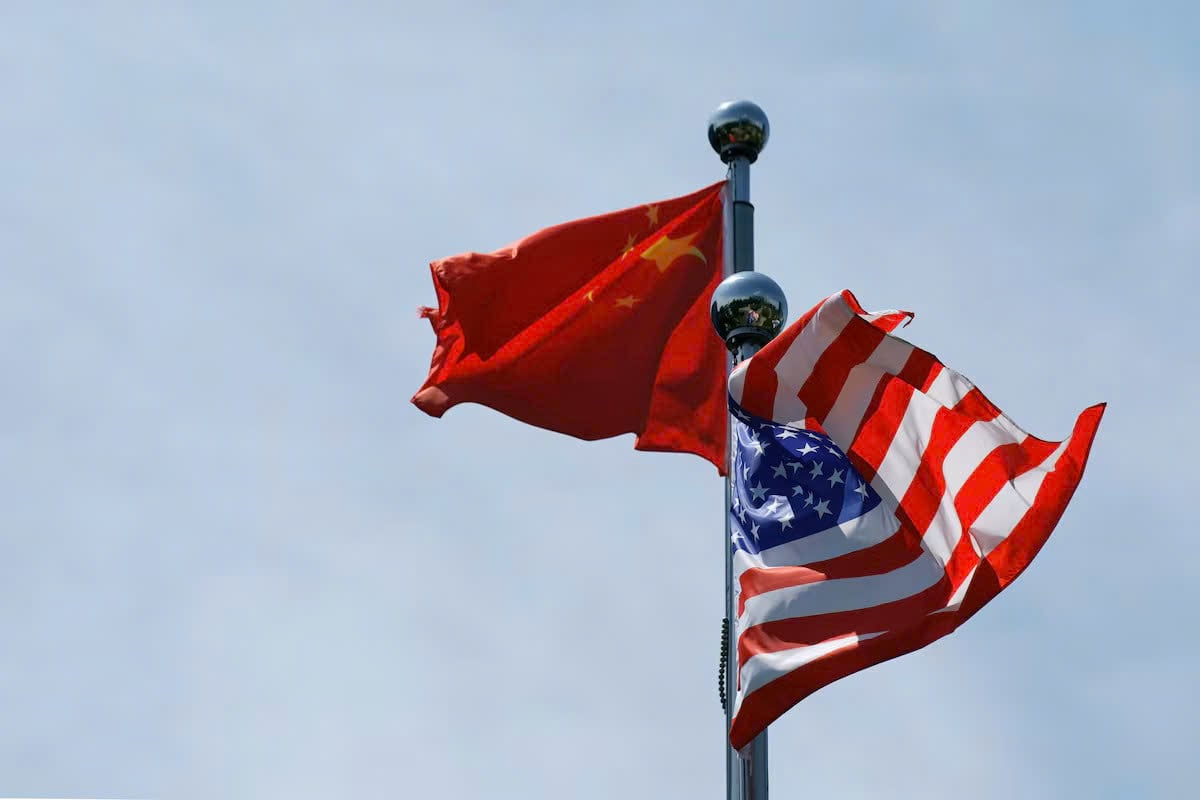
The US-China trade war is likely to escalate rapidly.
Regarding this issue, responding to Thanh Nien on March 5, Professor Stephen Robert Nagy (International Christian University - Japan, scholar at the Japan Institute of International Affairs) analyzed: "In less than 2 months since taking office, President Trump has increased tariffs on Chinese goods twice. There are many questions about the nature, ultimate purpose of the tariffs and whether they will harm American families. It seems that Mr. Trump's direct advisors support the tariffs, while many economists and business leaders are less inclined to support tariffs on China, let alone friends like Canada and Mexico."
"It is possible that President Trump sees tariffs as a path to a major trade deal with China, but there are still many unanswered questions about his stance. Is it a strategy, or is it exploiting America's biggest advantage - the consumer market - to make China accept Washington's demands?" Dr. Nagy assessed.
In fact, increasing import tariffs while the US has not been able to shift its supply chain domestically has caused the prices of goods in this country to increase, causing a negative impact on the US economy. Bloomberg on March 5 quoted the President of the Federal Reserve Bank of New York (USA) John Williams predicting that the tariffs will cause inflation to increase.
Trade war broke out when Mr. Trump officially imposed tariffs on Canada, China and Mexico
No ending yet?
Also responding to Thanh Nien , Dr. Satoru Nagao (Hudson Institute, USA) commented: "The Trump administration has imposed many types of tariffs on many countries. But there are two types of tariffs! Tariffs on China and tariffs on other countries. For example, the White House initially announced an increase in tariffs on Canada, Mexico and China for the same reason and at the same time. Then, the White House postponed imposing tariffs on Canada and Mexico in February, because the US was negotiating with Canada and Mexico. This means that tariffs on Canada and Mexico are negotiating tools. However, the Trump administration increased tariffs on China even though the US postponed increasing tariffs on Canada and Mexico.
In March, the US resumed tariffs on Canada and Mexico, but the US increased tariffs on China again. Indeed, in the case of China, the same situation happened many times when Trump was president from 2016 to 2020. From this perspective, tariffs on China and tariffs on other countries are different. Tariffs on China are not negotiable and tariffs on other countries are a negotiating tool.
"What is the real reason for this difference? Indeed, it is possible that tariffs on China are a competitive tool. Because financial resources are helping China assert its current assertiveness. When China has enough money, China can quickly modernize its military. China's wealth also allows it to invest large sums of money in countries to expand its influence. Therefore, if the US-China trade war can hurt Beijing's resources, then for the US, it is the right way to deal with China," Dr. Nagao added.
He said: "The current 20% total tax rate is just the beginning. Most likely, the US under President Trump will increase tariffs on Chinese goods."
US business group moves to control Panama Canal
Reuters reported yesterday that Hong Kong-based CK Hutchison has agreed to sell a majority stake in its Panama port operator to a group of investment firms led by US fund management firm BlackRock. The deal will give BlackRock a 90% stake in the Panama Port Company, which operates the two ports of Balboa and Cristobal, located at the two gateways of the Panama Canal. The acquisition of most of CK Hutchison's port licenses, in a deal estimated to be worth nearly $23 billion, will give the group control of a total of 43 ports in 23 countries.
The move is seen as a victory for US President Donald Trump, who has repeatedly emphasized the goal of giving the US control of the Panama Canal, which has a strategic role in trade and geopolitics . In his speech to the US Congress on March 4, Mr. Trump affirmed that he would reclaim the Panama Canal, and mentioned the information that an American company announced the purchase of ports around the canal.
Bao Hoang
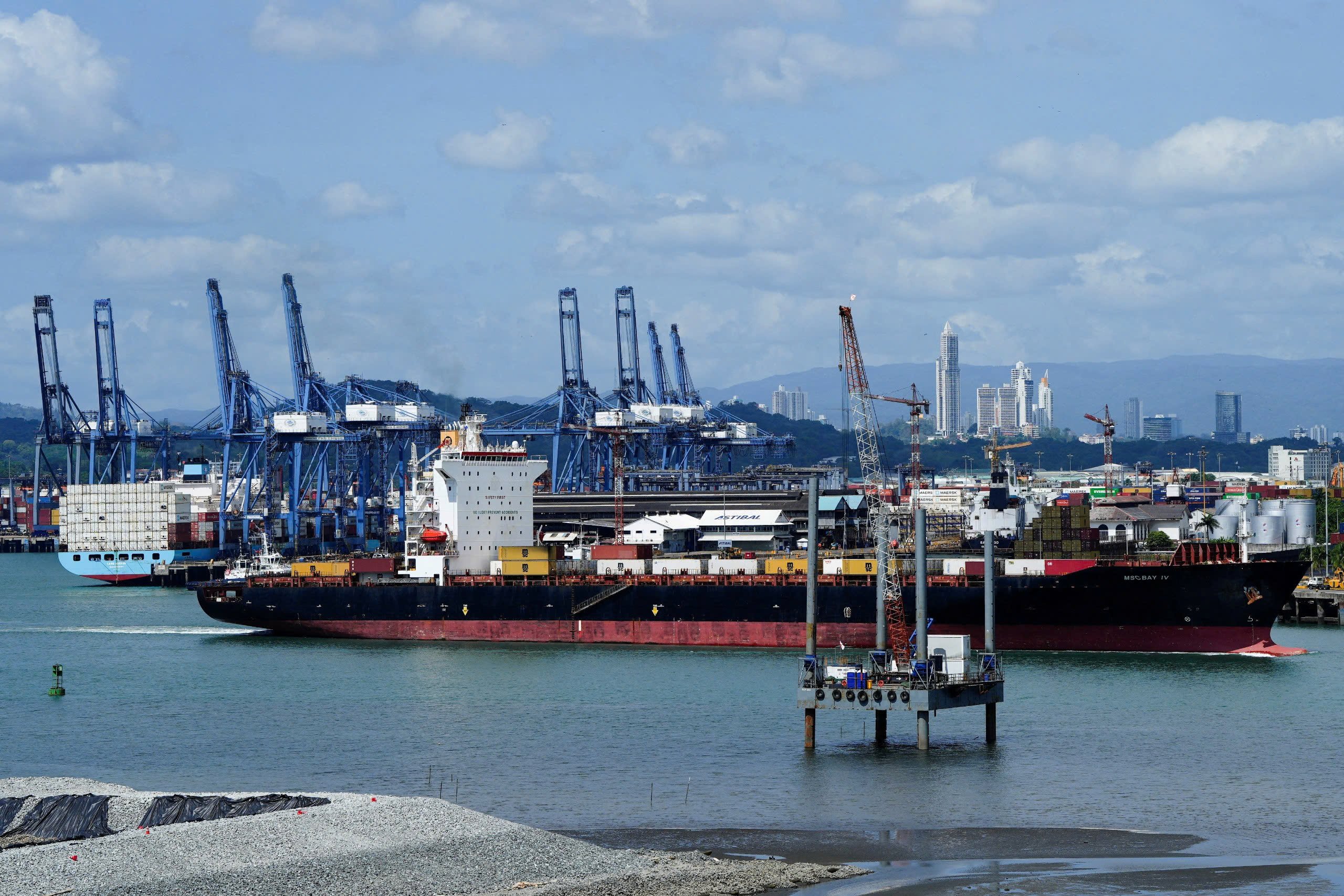
The ship moves near Balboa port, Panama on March 4.
Source: https://thanhnien.vn/nguy-co-dai-thuong-chien-my-trung-18525030523043434.htm


![[Photo] 60th Anniversary of the Founding of the Vietnam Association of Photographic Artists](/_next/image?url=https%3A%2F%2Fvphoto.vietnam.vn%2Fthumb%2F1200x675%2Fvietnam%2Fresource%2FIMAGE%2F2025%2F12%2F05%2F1764935864512_a1-bnd-0841-9740-jpg.webp&w=3840&q=75)


![[Photo] National Assembly Chairman Tran Thanh Man attends the VinFuture 2025 Award Ceremony](/_next/image?url=https%3A%2F%2Fvphoto.vietnam.vn%2Fthumb%2F1200x675%2Fvietnam%2Fresource%2FIMAGE%2F2025%2F12%2F05%2F1764951162416_2628509768338816493-6995-jpg.webp&w=3840&q=75)


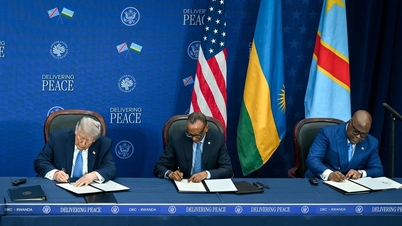



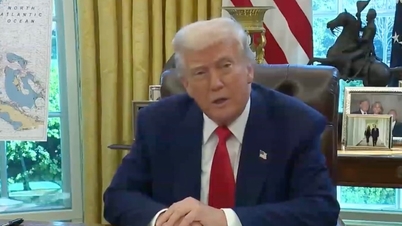
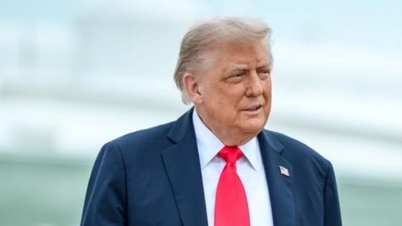
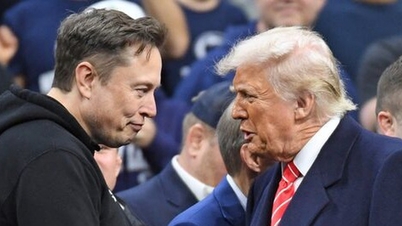





























































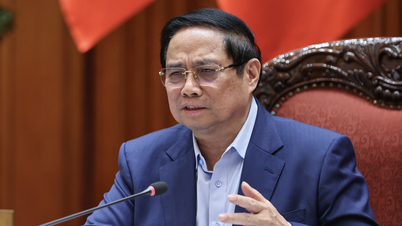


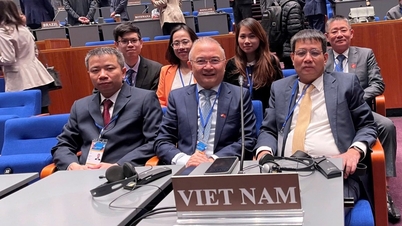






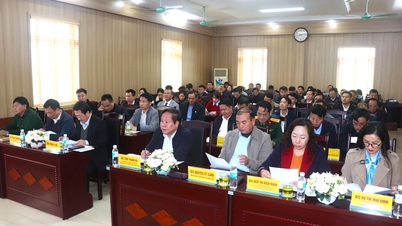


























Comment (0)